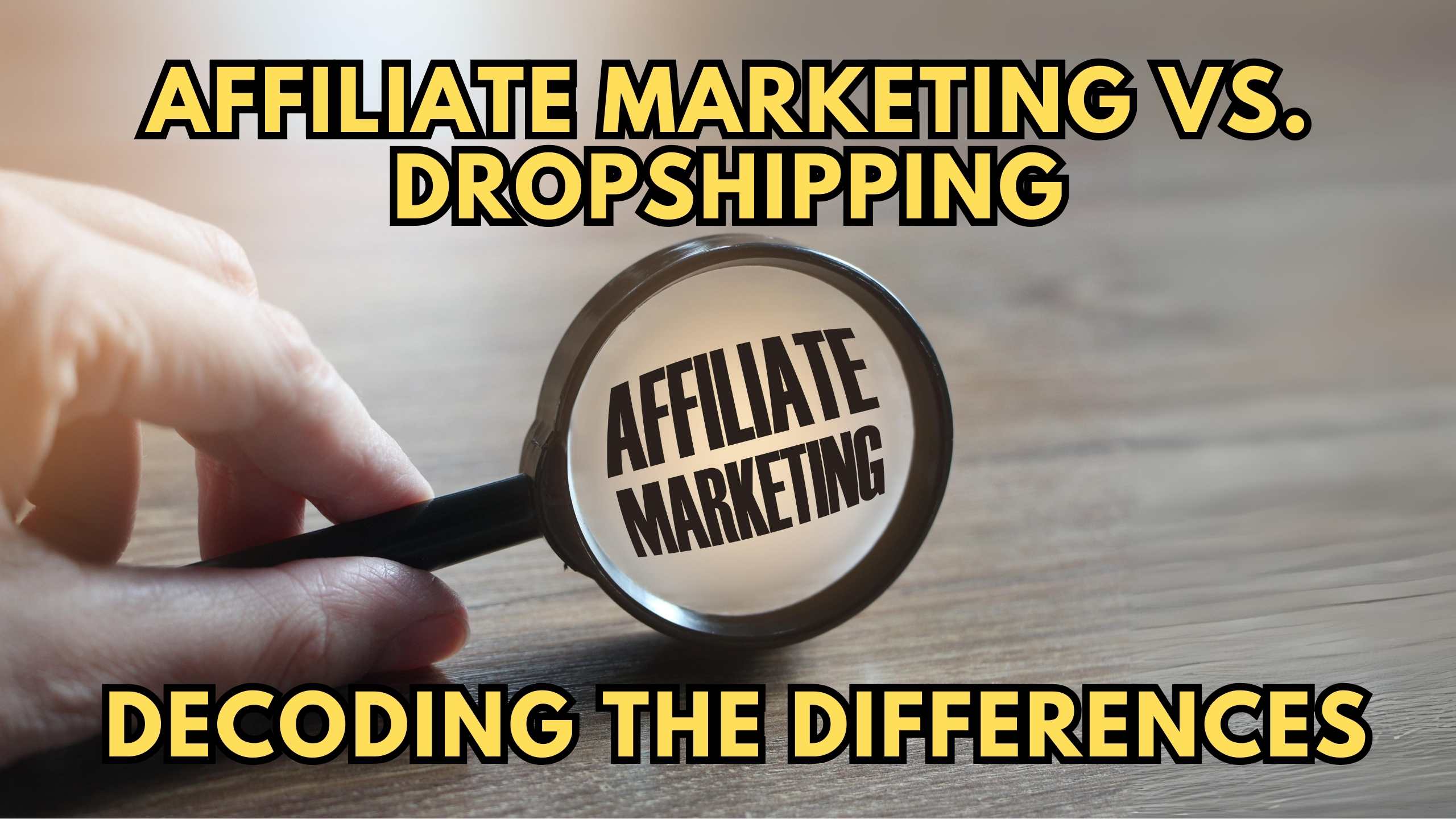Affiliate Marketing vs. Dropshipping: Decoding the Differences


Affiliate Marketing vs. Dropshipping: Decoding the Differences
Navigating the e-commerce landscape involves understanding the nuances of different business models. Two popular approaches, affiliate marketing and dropshipping, are often subject to confusion. This blog aims to unravel the distinctions between affiliate marketing and dropshipping, providing insights for entrepreneurs and businesses exploring these paths.
Affiliate Marketing: Partnering for Profit
Affiliate marketing involves promoting products and earning a commission for each sale generated through your unique affiliate link. One of the key advantages is a low barrier to entry, making it an attractive option for individuals seeking to monetize their online presence. Platforms like ShareASale provide a comprehensive environment for managing affiliate relationships and tracking performance.
Dropshipping: Inventory-Light E-Commerce
Dropshipping, on the other hand, revolves around selling products without holding inventory. When a product is sold, the retailer purchases the item from a third party and has it shipped directly to the customer. This model minimizes upfront costs and eliminates the need for warehousing. Shopify is a popular e-commerce platform that facilitates dropshipping, offering integrations with various suppliers and automating order fulfillment.
Distinguishing Factors Between Affiliate Marketing and Dropshipping
- Ownership and Control: Affiliate marketers promote products but don’t own inventory, while dropshippers manage the sales process and customer experience directly.
- Financial Model: Affiliates earn commissions on sales, while dropshippers set their product prices, managing profit margins.
- Scalability: Both models offer scalability, but dropshipping requires more management as sales volumes increase.
- Branding and Customer Relationships: Dropshippers have more control over branding and customer relationships, while affiliates rely on the reputation of the products they promote.
- Risk and Investment: Affiliate marketing involves minimal risk and no upfront investment, making it a low-cost entry option. Dropshipping requires more investment but allows for greater control.
Recommended SaaS Products
- ShareASale: Streamline your affiliate marketing efforts with ShareASale’s platform, connecting you with a diverse network of affiliate programs.
- Shopify: Power your dropshipping store with Shopify, an e-commerce platform that simplifies product management, order fulfillment, and customer engagement.
- Refersion: Enhance your affiliate marketing strategy with Refersion, offering advanced tracking and analytics to optimize your affiliate program’s performance.
- Oberlo: Simplify dropshipping on Shopify with Oberlo, enabling you to find and sell products seamlessly without the hassle of inventory management.
- ShipStation: Streamline order fulfillment for your e-commerce store, whether dropshipping or managing affiliates, with ShipStation’s efficient shipping and tracking tools.
- PayPal: Facilitate secure and convenient online transactions, essential for both affiliate marketing and dropshipping businesses, with PayPal’s reliable payment processing.
Conclusion
In conclusion, understanding the differences between affiliate marketing and dropshipping is crucial for making informed decisions in the e-commerce landscape. Whether you choose to leverage affiliate relationships through ShareASale, embark on a dropshipping journey with Shopify, or enhance your strategies with Refersion, Oberlo, ShipStation, and PayPal, each model comes with its own set of advantages and considerations.
Elevate Your E-Commerce Strategy with Subscribed.fyi!
Ready to optimize your e-commerce strategy? Subscribed.fyi offers an all-in-one solution for managing your SaaS stack, helping you unlock exclusive deals and streamline your subscription management. Sign up for free and discover the secret to navigating the diverse world of e-commerce while saving big on essential tools.
Relevant Links:








